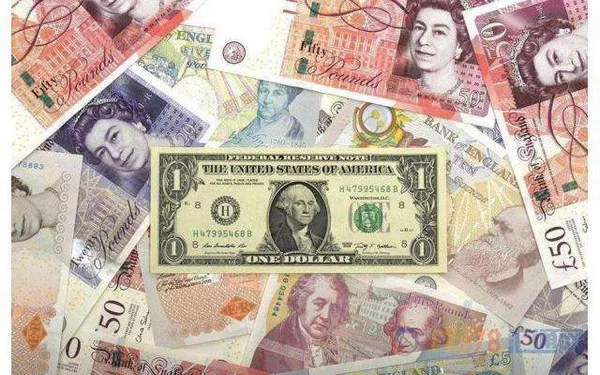The dynamics of currency exchange rates play a pivotal role in the global economy. Investors, businesses, and governments closely monitor these rates as they impact international trade, investments, and economic stability. Among the most closely watched exchange rates is the British Pound (GBP) against the United States Dollar (USD). In recent years, observers have noted that the Pound has exhibited strength relative to the Dollar, prompting the question: Why is the Pound stronger than the Dollar? This article delves into the factors contributing to this phenomenon.
Historical Context
To understand the current strength of the Pound relative to the Dollar, it’s essential to consider historical context. The GBP-USD exchange rate has seen fluctuations over the years. Historically, the Pound has been a dominant global currency, especially during the era of the British Empire. However, the Pound’s influence waned significantly after World War II, largely due to the economic devastation caused by the war and the emergence of the United States as a global economic superpower.
In the post-war period, the United States Dollar assumed a position of dominance, largely thanks to the Bretton Woods Agreement of 1944, which pegged many global currencies, including the Pound, to the Dollar. This period of U.S. economic dominance persisted for decades, but more recently, the dynamics have shifted. The question of “Why is the Pound stronger than the Dollar” comes into focus against this historical backdrop.
Economic Performance
One key factor contributing to the Pound’s recent strength relative to the Dollar is the economic performance of the United Kingdom compared to the United States. The strength of a currency is often closely tied to the health and performance of the economy it represents. In recent years, the UK has shown resilience and economic growth, particularly in sectors like technology, finance, and pharmaceuticals.
The Pound’s strength relative to the Dollar can also be attributed to the stability of the UK’s political and economic institutions. The UK has a long history of stable governance, a strong legal framework, and an independent central bank, the Bank of England, which has maintained a prudent monetary policy. These factors inspire confidence among investors and contribute to the Pound’s appeal.
Monetary Policy and Interest Rates
Monetary policy plays a pivotal role in determining exchange rates. Central banks use interest rates as a tool to manage inflation and economic growth. Higher interest rates typically attract foreign capital, leading to an appreciation of the currency.
In the context of “Why is the Pound stronger than the Dollar,” the policies of the Bank of England and the Federal Reserve are crucial. The Bank of England has maintained a cautious approach to interest rate increases, focusing on controlling inflation while supporting economic growth. On the other hand, the Federal Reserve has pursued a policy of gradually raising interest rates to curb inflation, which can lead to an increase in the value of the Dollar.
Political Stability and Brexit
Another critical factor influencing the relative strength of the Pound and the Dollar is political stability and, in the case of the UK, Brexit. Political uncertainty and instability can lead to a depreciation of a country’s currency.
The Pound’s strength relative to the Dollar can be partly attributed to the resolution of some uncertainty surrounding Brexit. While the process of leaving the European Union was tumultuous and led to a period of uncertainty, the eventual agreement between the UK and the EU provided some clarity for businesses and investors. This contributed to a more stable economic environment in the UK.
Global Trade and Diversification
International trade is a significant driver of currency strength. A country with a strong export sector tends to see demand for its currency, as foreign businesses and governments need it to purchase goods and services.
In the context of “Why is the Pound stronger than the Dollar,” the UK’s trade relationships and diversification play a role. The UK maintains strong trade ties with both European and non-European countries, making its economy less dependent on any single market. This diversification contributes to a stable demand for the Pound.
Currency Speculation and Market Sentiment
Currency markets are also influenced by speculation and market sentiment. Traders and investors often make decisions based on their perceptions of a currency’s future value. Positive sentiment can lead to increased demand for a currency, driving up its value.
In recent years, some investors and traders may have taken a more positive view of the Pound relative to the Dollar. Factors such as the UK’s economic performance, Brexit clarity, and central bank policies can influence this sentiment and contribute to the Pound’s strength.
Conclusion
In conclusion, the relative strength of the Pound compared to the Dollar can be attributed to a combination of economic factors, monetary policies, political stability, and market sentiment. The UK’s economic performance, stability of institutions, cautious monetary policy, and diversification of trade relationships have all played a role in the Pound’s recent strength. Additionally, the resolution of some uncertainty surrounding Brexit has contributed to a more stable environment in the UK.
However, it’s important to note that exchange rates are complex and subject to various influences. They can fluctuate based on geopolitical events, economic developments, and changes in market sentiment. As a result, the Pound’s strength relative to the Dollar can evolve over time. Investors and businesses must continue to monitor these factors to make informed decisions in an ever-changing global economy.
Related Topics:
Will the Pound Get Stronger? A Comprehensive Analysis
Why GBP is Falling? Exploring the Factors Behind the Decline
The Faces Adorning the Pound Note: A Historical & Cultural Journey


























